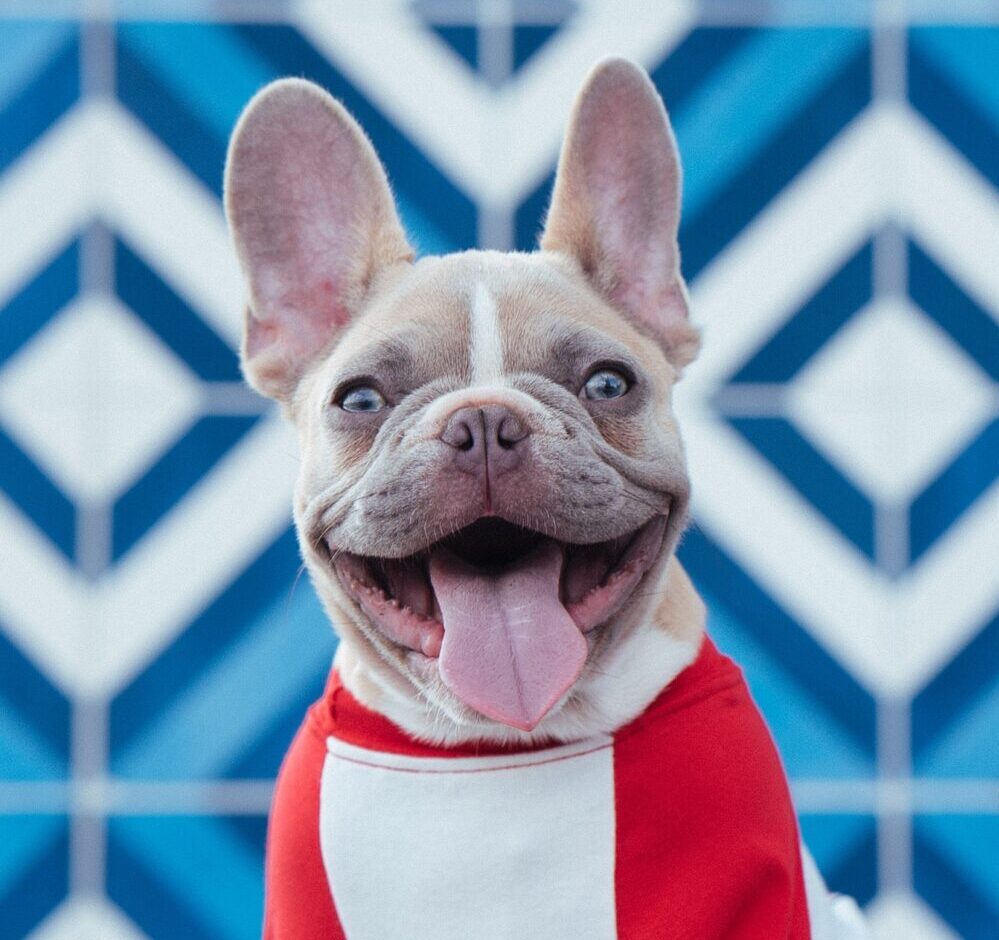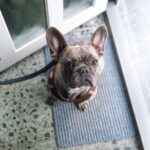Support our educational content for free when you purchase through links on our site. Learn more
[2023] What Dog Breeds are Brachycephalic or Snub Nosed?
Table of Contents
- Quick Answer
- Quick Tips and Facts
- What are Brachycephalic Dogs?
- Brachycephalic Dog Breeds
- Are Pitbulls Brachycephalic Dogs?
- Traveling with a Snub-Nosed Dog
- Expert Tips for Flying with a Snub-Nosed Dog
- Common Health Issues in Snub-Nosed Dogs
- FAQ
- Conclusion
- Recommended Links
- Reference Links
Quick Answer
Brachycephalic dog breeds, also known as snub-nosed breeds, have short and wide heads with flat faces. Some examples of brachycephalic breeds include the Bulldog, Pug, Boston Terrier, and Shih Tzu. These breeds are prone to certain health issues due to their unique anatomy. It's important to understand the specific needs and considerations when caring for a snub-nosed dog.
Quick Tips and Facts
- Brachycephalic dogs have short and wide heads with flat faces.
- Snub-nosed breeds are prone to respiratory issues and overheating.
- Some common brachycephalic breeds include the Bulldog, Pug, Boston Terrier, and Shih Tzu.
- These breeds may require special care, such as avoiding strenuous exercise and providing ample shade and water.
- When traveling with a snub-nosed dog, it's important to take extra precautions to ensure their safety and comfort.
What are Brachycephalic Dogs?
Brachycephalic dogs are characterized by their short and wide heads with flat faces. This unique head shape is the result of selective breeding for certain aesthetic features. While these breeds are undeniably adorable, their distinctive anatomy can lead to a range of health issues.
The term "brachycephalic" is derived from the Greek words "brachys," meaning short, and "kephalē," meaning head. Due to their flattened faces, these dogs often have compressed airways and narrowed nostrils, which can make breathing more challenging for them.
Brachycephalic Dog Breeds
There are several dog breeds that fall under the category of brachycephalic or snub-nosed. Let's take a closer look at some of the most popular ones:
Bulldog
The Bulldog is a well-known brachycephalic breed with a distinctive wrinkled face and a sturdy build. Bulldogs are known for their friendly and docile nature, making them great family pets. However, they are prone to certain health issues, including breathing difficulties and heat intolerance.
Shop Bulldog on Amazon | Walmart | Etsy
"I absolutely adore my Bulldog! He's such a lovable companion. However, I do have to be mindful of his breathing and make sure he doesn't overexert himself." – Happy Bulldog Owner
Pug
The Pug is another popular brachycephalic breed known for its wrinkled face and large, expressive eyes. Pugs are known for their playful and affectionate nature, making them excellent companions. However, their short muzzles can lead to breathing difficulties and overheating.
Shop Pug on Amazon | Walmart | Etsy
"My Pug is the light of my life! He brings so much joy to our family. We do have to be careful during hot weather and make sure he doesn't overexert himself." – Pug Parent
Boston Terrier
The Boston Terrier is a small, muscular breed with a friendly and outgoing personality. They are often referred to as "American Gentlemen" due to their tuxedo-like coat. Boston Terriers are prone to various health issues, including respiratory problems and eye conditions.
Shop Boston Terrier on Amazon | Walmart | Etsy
"Our Boston Terrier is such a sweetheart. We love his playful nature, but we have to be mindful of his breathing and take frequent breaks during walks." – Boston Terrier Enthusiast
Shih Tzu
The Shih Tzu is a small and affectionate breed known for its long, flowing coat. They are often described as friendly, outgoing, and great with children. While Shih Tzus are generally healthy dogs, their brachycephalic features can make them prone to breathing difficulties and overheating.
Shop Shih Tzu on Amazon | Walmart | Etsy
"My Shih Tzu is the perfect lap dog. She loves to cuddle and play. However, we have to be cautious during hot weather and make sure she stays cool." – Shih Tzu Lover
Are Pitbulls Brachycephalic Dogs?
No, Pitbulls are not considered brachycephalic dogs. Pitbulls have a more mesocephalic head shape, which means their heads are of medium length and width. Unlike brachycephalic breeds, Pitbulls generally have a more normal respiratory system and are not as prone to the same breathing difficulties.
However, it's important to note that individual dogs within any breed can have variations in head shape. Some Pitbulls may have shorter muzzles, which could lead to respiratory issues similar to those seen in brachycephalic breeds. If you have a Pitbull with a shorter muzzle, it's essential to monitor their breathing and consult with a veterinarian if you have any concerns.
Traveling with a Snub-Nosed Dog
Traveling with a snub-nosed dog requires extra care and preparation. Whether you're taking a road trip or flying with your furry friend, it's important to prioritize their comfort and safety. Here are some tips to make the journey smoother:
-
Consult with your veterinarian: Before traveling, schedule a visit with your vet to ensure your dog is healthy and fit for travel.
-
Choose the right carrier: Invest in a well-ventilated carrier that provides ample space for your dog to stand, turn around, and lie down comfortably. Make sure the carrier meets the airline's requirements if you're flying.
-
Acclimate your dog to the carrier: Gradually introduce your dog to the carrier by letting them explore it at home. This will help them feel more comfortable and relaxed during the journey.
-
Pack essentials: Bring along your dog's favorite blanket, toys, food, and water. Familiar items can help reduce stress and provide a sense of security.
-
Avoid extreme temperatures: Snub-nosed dogs are more susceptible to heatstroke and heat exhaustion. Avoid traveling during extreme weather conditions and ensure your dog is kept in a well-ventilated area.
-
Take frequent breaks: If you're traveling by car, plan regular stops to allow your dog to stretch their legs, go to the bathroom, and get some fresh air.
-
Stay calm and reassuring: Your dog can pick up on your emotions, so it's essential to remain calm and reassuring throughout the journey. Comforting words and gentle strokes can help alleviate anxiety.
Expert Tips for Flying with a Snub-Nosed Dog
Flying with a snub-nosed dog requires additional considerations due to the potential risks associated with their respiratory system. If you must fly with your snub-nosed dog, here are some expert tips to ensure their safety:
-
Choose a pet-friendly airline: Not all airlines have the same policies and accommodations for snub-nosed breeds. Research airlines that have experience handling these breeds and prioritize their safety.
-
Book a direct flight: Direct flights reduce the stress and potential risks associated with layovers and transfers.
-
Avoid flying during extreme temperatures: Snub-nosed dogs are more sensitive to temperature extremes. Choose a travel date when the weather is mild to minimize the risk of overheating or cold stress.
-
Notify the airline in advance: Inform the airline that you will be traveling with a snub-nosed dog. Some airlines have specific requirements or restrictions for these breeds.
-
Provide proper hydration: Ensure your dog has access to water throughout the journey. Consider freezing a small dish of water that will gradually melt, providing a continuous source of hydration.
-
Avoid sedation: Sedating your dog for air travel can be risky, as it can affect their respiratory system. Consult with your veterinarian about alternative methods to keep your dog calm and relaxed.
-
Monitor your dog during the flight: Keep an eye on your dog's behavior and breathing throughout the flight. If you notice any signs of distress, notify a flight attendant immediately.
Common Health Issues in Snub-Nosed Dogs
Snub-nosed dogs are prone to certain health issues due to their unique anatomy. Here are some common health issues that can affect brachycephalic breeds:
-
Brachycephalic Airway Syndrome: This condition refers to a combination of anatomical abnormalities that affect the dog's upper airway, making breathing more difficult. Symptoms may include snoring, noisy breathing, and exercise intolerance.
-
Heat Intolerance: Snub-nosed breeds have a harder time regulating their body temperature, making them more susceptible to heatstroke and heat exhaustion. It's crucial to keep them cool and provide plenty of shade and water.
-
Eye Problems: The prominent eyes of snub-nosed breeds are more exposed and prone to injury, infections, and other eye conditions. Regular eye care and check-ups are essential for maintaining their eye health.
-
Dental Issues: Snub-nosed dogs often have crowded teeth, which can lead to dental problems such as tooth decay and gum disease. Regular dental care, including brushing and professional cleanings, is important for their oral health.
If you own a snub-nosed dog, it's important to be aware of these potential health issues and take proactive measures to keep your furry friend healthy and comfortable.
FAQ
What dog breeds are snub nosed?
Some dog breeds that are considered snub-nosed or brachycephalic include:
- Bulldog
- Pug
- Boston Terrier
- Shih Tzu
- Boxer
- French Bulldog
- Cavalier King Charles Spaniel
- Lhasa Apso
- Japanese Chin
- Affenpinscher
Which breed of dog is the brachycephalic?
The Bulldog is one of the most well-known brachycephalic breeds. Their distinctive flat faces and short muzzles make them easily recognizable. However, there are several other breeds that fall under the category of brachycephalic, including the Pug, Boston Terrier, and Shih Tzu.
What breeds are short snub-nosed brachycephalic?
Short snub-nosed brachycephalic breeds include the Bulldog, Pug, Boston Terrier, Shih Tzu, Boxer, French Bulldog, Cavalier King Charles Spaniel, Lhasa Apso, Japanese Chin, and Affenpinscher.
Are pitbulls brachycephalic dogs?
No, Pitbulls are not considered brachycephalic dogs. Pitbulls have a more mesocephalic head shape, which means their heads are of medium length and width. While individual Pitbulls may have variations in head shape, they are generally not as prone to the same breathing difficulties as brachycephalic breeds.
Conclusion
Brachycephalic or snub-nosed dog breeds have unique characteristics that make them adorable and lovable companions. However, it's important to understand the specific needs and potential health issues associated with these breeds. From respiratory problems to heat intolerance, snub-nosed dogs require extra care and attention to ensure their well-being. Whether you're traveling with them or simply enjoying their company at home, always prioritize their comfort and safety.
Remember, if you're considering adding a snub-nosed breed to your family, be prepared for the potential challenges that come with their unique anatomy. Consult with reputable breeders or rescue organizations to ensure you're well-informed and ready to provide the best care for your furry friend.
Recommended Links
- Shop Bulldog on Amazon | Walmart | Etsy
- Shop Pug on Amazon | Walmart | Etsy
- Shop Boston Terrier on Amazon | Walmart | Etsy
- Shop Shih Tzu on Amazon | Walmart | Etsy
- Snubby Puppy™ – Snub-Nosed Dog Breeds





